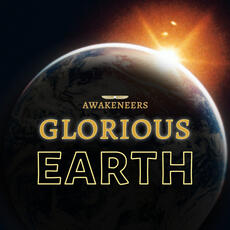
EARTH: A GRAPHIC LOOK AT THE STATE OF THE WORLD
Planet Earth Update: The Executive Summary
A concise and comprehensive overview of the state of the planet and humanity.
Earth's ecological and human systems are in severe crisis. Although there is a wealth of information available, much of it is fragmented. The convergence of issues facing the earth are so interrelated that most of them cannot be fully understood out of context.
"Earth: A Graphic Look at the State of the World", was first published in 2005 as a printed wall chart. "Earth" is now completely updated and expanded. It covers critical information to present a truthful look at the urgent conditions on the planet; ecological as well as human. "Earth" is a single, educational power-tool; impartial, accurate and rigorously referenced to reliable sources.
EARTH UPDATE PRESENTATION
"Earth: A Graphic Look at the State of the World" is also available as a hi-res PDF ready for download. This comprehensive teaching tool can be used as a carefully sequenced slide show, a printed booklet, or a set of individual handouts. All charts, maps and text on this website are included in the Presentation.
View the Information in Each Section
Global Ecology
Population, pollution, greenhouse gases and deforestation are creating never before seen changes in Earth's living systems—including a cultural and species extinction rate that is the highest in the planet's history. Fishing & Aquaculture
Fisheries and aquaculture; fish consumption and utilization; what countries claim as Exclusive Economic Zones (EEZs), and how heavily the world's fish stocks are being exploited; oil in the ocean; coral reefs.
Fresh Water
Only 2.5% of the world's water is fresh—the water on which the world's terrestrial life depends. Around 70% of this fresh water is frozen in ice or permafrost. How much is being used for what, and who has access to it? Agriculture & Food
Agricultural and food production has changed dramatically in the past 100 years as increasing population and consumption put pressure on the world's food supply. A look at the environmental impacts of agriculture and food; global distribution and nutrition; food loss and waste. Fossil Fuel
Industrialized civilization is dependent upon cheap and reliable fossil fuel energy. This section includes a look at production, consumption, remaining known resources and the global carbon budget.
Climate
Historical and contemporary overview of greenhouse gas emissions and atmospheric concentrations—which countries emit the most CO2, total and per capita; methane; ocean warming and sea level rise; global temperature projections; glacier and ice loss.
Plastics
This section is an overview of the steep and rapid rise in the production and use of plastics; plastic waste management and mis-management; recycling; and the prevalence of microplastic debris in the environment. Toxics & Biotechnology
A look at toxic chemical use (including Glyphosate, PCBs, DDT, dioxin, PBDE, lead, and mercury); safety testing; groundwater contamination; air pollution; the increase in biotechnology and pesticides in agriculture; nuclear toxicity.
Development & Debt
How onerous are the debt burdens of countries? How are the IMF and World Bank helping or hindering sustainable development? Are poor countries catching up to rich ones? Succinct graphs and an overview of the UN's Human Development ranking helps answer these questions. Wealth & Inequality
Wealth is more concentrated, and the gap between rich and poor continues to widen. In this section: a comparison of the world's largest corporations and the most powerful countries; distribution of wealth; income inequality; prison incarceration rates; and use of police force in the US. Weapons
A global overview of the biggest military spenders and budgets, who has nuclear arsenals, the effects of depleted uranium, and an overview of national arms exports; including which countries produce, sell and use most of the world's weapons. Life Expectancy & Disease
Clear, factual information on the trends of life expectancy; which diseases are causing what share of deaths in the world and North America; a historical and contemporary look at the AIDS epidemic; alcohol and drug use disorders.
Sign up for EARTH Dispatches
Enter you email below to get jaw dropping charts and maps delivered straight to your inbox.
Get the EARTH presentation
A 150 page high-resolution PDF containing all updated maps, charts and data on EARTH website; use as an information-packed educational slide show, printed booklet or a set of single-page handouts.
Learn More

